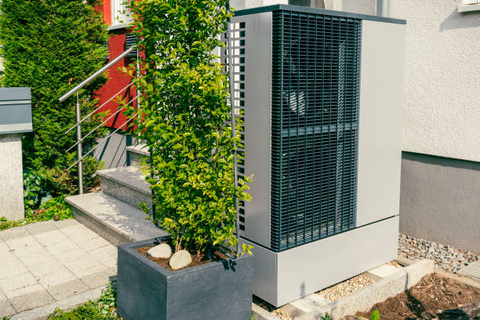Heating our homes is essential for comfort, but it's also crucial to consider the impact of our choices on the environment and energy consumption. Air to water heat pumps have emerged as a popular alternative to traditional heating systems due to their energy-efficient and eco-friendly operation. How air to water heat pumps compare with traditional heating systems, let's explore their performance, efficiency, and environmental impact. By understanding the differences between these two heating methods, you can make an informed decision that aligns with your heating needs and sustainability goals.

Air to Water Heat Pumps: How They Work
Air to water heat pumps operate by extracting heat from the outside air and transferring it to a water-based heating system inside the home. They use a refrigerant to facilitate the heat transfer process, providing both space heating and hot water. These heat pumps work efficiently even in colder climates and can deliver up to four times more energy than they consume, making them an energy-efficient option for heating.
Traditional Heating Systems: Types and Operation
Traditional heating systems include gas boilers, oil-fired boilers, and electric-resistance heaters. Gas boilers use natural gas to generate heat, while oil-fired boilers use heating oil. Electric resistance heaters use electric current to generate heat directly. These systems heat the air or water within the home and distribute it through radiators, baseboard heaters, or forced air systems. While they have been widely used for decades, they generally have lower efficiency than air-to-water heat pumps.
Performance Comparison
Air to water heat pumps excel in performance, offering a high coefficient of performance (COP) that indicates their ability to produce more heat energy for every unit of electricity consumed. They maintain their efficiency even in colder temperatures, thanks to advancements in technology. On the other hand, traditional heating systems may struggle to maintain efficiency in extreme cold weather conditions, especially for gas and oil boilers.
Efficiency and Cost Comparison
Air to water heat pumps are known for their energy efficiency and can significantly reduce heating costs compared to traditional heating systems. By transferring heat from the environment rather than generating it, they consume less electricity, resulting in substantial energy savings. However, the initial installation cost of air to water heat pumps can be higher than traditional heating systems. Over time, the energy savings can offset the initial investment.
Environmental Impact
Air to water heat pump is considered environmentally friendly heating solutions since they use renewable heat sources from the outside air. By reducing electricity consumption, they also contribute to lower greenhouse gas emissions. Traditional heating systems, particularly those reliant on fossil fuels, emit carbon dioxide and other pollutants, making them less eco-friendly and contributing to climate change.
Installation and Maintenance
Air to water heat pump installation requires outdoor and indoor units, including a water tank for the heating system. Regular maintenance is essential to ensure optimal performance. Traditional heating systems may have simpler installation, but they require regular maintenance to remain efficient.
Conclusion
Choosing between air to water heat pumps and traditional heating systems depends on your heating needs, budget, and environmental concerns. Air to water heat pumps offer superior energy efficiency and environmental benefits, making them an attractive choice for sustainable heating solutions. However, it's essential to consider your specific circumstances to make the best decision for your home.

